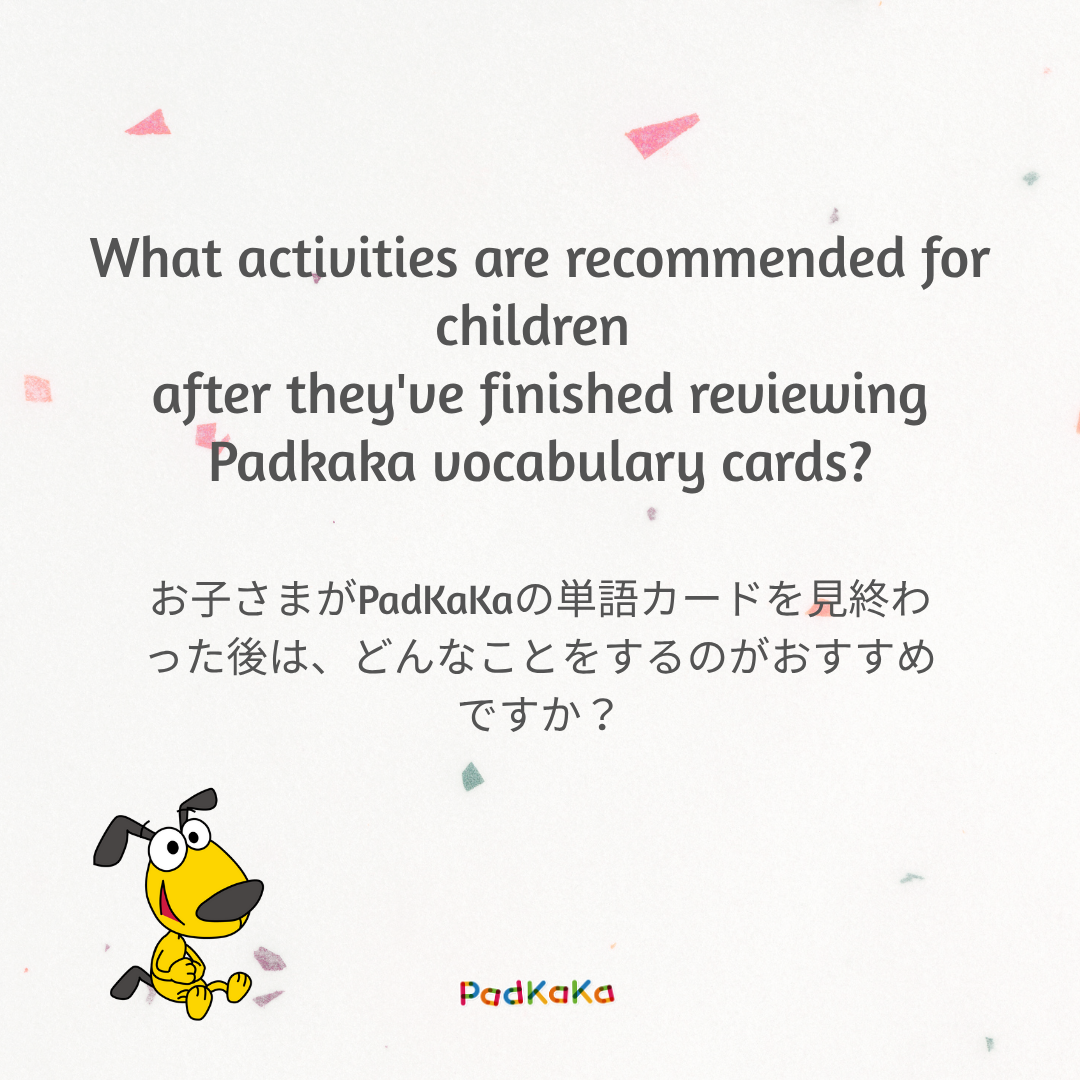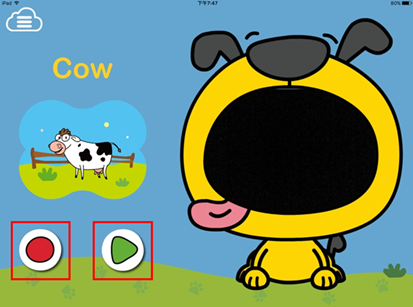What activities are recommended for children after they’ve finished reviewing Padkaka vocabulary cards?

Besides watching cartoons, it’s even better to give children tasks to complete—they’ll feel a stronger sense of accomplishment. It’s highly recommended that parents participate too, not as teachers, but as playmates. This embodies the spirit of co-learning between parents and children.

- Encourage kids to record their voice
After watching a cartoon, they can record vocabulary pronunciation. If they forget a word, simply tap the card on the screen. If the child’s level allows, let them choose 1–2 of their favorite sentences to say and record. You can use PadKaKa’s talking books or reading pen to mimic pronunciation. Moms can join in too!
Many kids enjoy recording—especially full sentences. To make it fun, encourage expressive emotion in their recordings. Parents can model by recording in exaggerated voices. - Review cartoon dialogue aloud
Let kids repeat the dialogue from cartoon characters while reviewing. Don’t worry if pronunciation isn’t accurate or sentences aren’t complete. PadKaKa’s tools (Reading pen & Talking Books) can help them follow along and imitate pronunciation. - Role playing
Once children progress enough, try role-playing their favorite cartoon. Parents and kids can take on characters together. If the child’s level is high, they might try acting out all roles independently. - Review recent vocabulary
Flashcard mode of PadKaKa App:
Use flashcard mode so the child can repeat the words. You can mute the tablet so they say the words themselves.
Test mode of PadKaKa App:
Enable audio-only prompts so the child selects the corresponding card based on pronunciation recognition.
Reminders
- The difficulty of these activities varies widely. It’s not about doing harder tasks—choose ones the child can complete to build confidence and motivation first. As ability increases, gradually raise the difficulty. If tasks are too hard, they may feel frustrated and give up. Moms should offer timely encouragement to help the child feel successful.
- When practicing sentence imitation, guide the child to use emotion, even exaggerated expressions—like cartoon character voices. This keeps things fun and reinforces that they’re learning a language, not just reciting phrases. Don’t worry about perfect pronunciation. At this stage, it’s natural for kids to mispronounce, and they’ll naturally want to improve over time.
- Parents should try to participate in these tasks and praise their kids frequently.
Parent–Child English Practice
One final reminder: moms/daddy should engage in parent–child English.
This kind of shared practice makes kids more eager to review older vocabulary cards, especially since many cartoon phrases can be used in daily life. PadKaKa’s Let’s Talk & Read series includes 12 mini books featuring 600 vocabulary cards, each paired with four simple parent–child English sentences. Whatever word the child learns, try using at least one sentence at home to help them genuinely use English in real-life situations. When moms use PadKaKa’s parent–child English, the learning effect is two to three times stronger.
For example, if your child learns the word “smell” (card 202):
Parent–child sentences from the book include:
- What’s that smell?
- Can you smell it?
- Do you like this smell?
- This smells really good.
Real-life usage:
Smell the food yourself, then let your child smell it and ask:
Do you like this smell?
Afterward, say: This smells really good.
Make it fun:
Grab your child’s little feet and say: Can you smell it?
Sniff dramatically and say: This smells really good.
If you can incorporate all three parent–child sentences, the effect is even better—especially for helping kids grasp abstract vocabulary.
Why use full sentences?
- Parents and children are using English together, in real-life situations
- Children can better understand vocabulary through sentence context, forming long-term memory
- Vocabulary learning ultimately leads to sentence use—this helps reinforce common structures and review additional words
Even if moms aren’t confident in English, that’s perfectly okay. The parent–child sentences we’ve prepared are simple and easy to use. By learning together with PadKaKa, you and your child can use English instead of just studying it—just one sentence a day makes a real impact.





